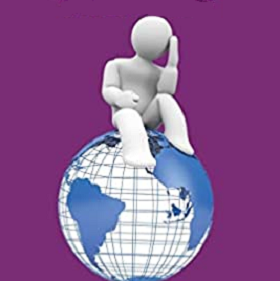
The crisis of Western thought and the pandemic
Old analyses still grounded in idealism, which study the state model, economic problems and anthropocentric models do not account for the new reality, the global pandemic was caused by a virus and caught every society unprepared.
anthropocentric models do not account for the new reality, the global pandemic was caused by a virus and caught every society unprepared.
The net analyses continue with discourses about obviousness, we are one planet, the problem is everyone’s, we have to review values, etc. but those that point to the future still live in the dimness of a thought about ideals that have been exhausted, but not the discourses.
Edgar Morin, who has long been pointing to a planetary citizenship, approaching 100 years and keeping a lucid head, in an interview with the L ́Observateur of 03/18 said: “Confinement can help us detoxify our way of life”, and in the same interview points out that “this crisis shows us that globalization is an interdependence without solidarity”, and that it has produced a techno-economic unification of the planet.
In the same vein Byung Chul Han wrote in the Society of Tiredness, that we are all in active life and ignore contemplative life, however the pandemic has taken us out of activism and we still do not know what to do with the “idleness” of staying at home, there is even religious discourse that calls it a tomb, but we will talk about it when we speak of the night of God and the instrumentalized religiosity of today.
To those who do not believe in this analysis, I remember that successful programs like “reality show” are now in fact realities because each one lives in his home, and “master chef” now has to happen in practice in families because restaurants are closed.
As for the technological aspect pointed out by Morin we can not forget that in addition to the global news, now for work, for education and even for leisure videoconferences are now realities, there are still those who curse against them, but it is schizophrenia because they are now necessary and even to maintain trade are indispensable, online shopping are there.
The detoxification of our way of life did not come through a plan of government, nor by a great cultural change, although the pandemic suggests this, even in our homes we still seek the unrealities of contemporary life, the pandemic, however causes a change of this vision.
The East and some countries, I quote the case of Portugal, are succeeding because of a certain discipline in the #StayAtHome when Peter Sloterdijk in The rules for the human park spoke about the failure of “human domestication”, did not imagine that a virus could demonstrate its thesis, will come out of the crisis early and will have fewer dead countries with greater social discipline.
Finally, Social Networks (not to be confused with the techno media we talked about above), the dynamics of the spread of the virus follows the logic of networks, and so if these studies are taken seriously we may be more ready in the defense of lives, not by chance the infectologist Carl Latkin is one of the scientists with the greatest publication in this subject.









